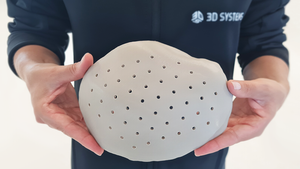A new green materials commercialization effort is underway at Novomer Inc. (Boston, MA), with the $800,000 project co-funded by the New York State Energy Research and Development Authority (NYSERDA). The second phase of a partnership with NYSERDA, the first phase utilized a $150,000 grant to fund a feasibility study carried out between December 2008 and May 2009, which investigated the financial, marketing, and environmental potential for the polypropylene carbonate (PPC) materials Novomer creates.
December 14, 2009
(Boston, MA), with the $800,000 project co-funded by the New York State Energy Research and Development Authority (NYSERDA). The second phase of a partnership with NYSERDA, the first phase utilized a $150,000 grant to fund a feasibility study carried out between December 2008 and May 2009, which investigated the financial, marketing, and environmental potential for the polypropylene carbonate (PPC) materials Novomer creates. The company’s core technology is a patented catalyst technology developed at Cornell to make PPC materials for packaging and coating applications, including bottles and film, from renewable feedstocks such as carbon dioxide. The company says its process uses 50% less energy than traditional plastics manufacturing, while actually removing carbon dioxide from the environment.
In the feasibility phase of the study, Novomer said it found that PPCs offered improved oxygen barrier over competitive, fossil-fuel derived plastics, as well as a combination of impact resistance and stiffness. These properties would allow less material to be used for the same applications. The resulting reduction in weight would also reduce energy and transportation costs throughout the supply chain.
Novomer’s first commercial product, NB-180, is an amorphous, colorless thermoplastic polymer developed specifically for high performance industrial and commercial applications requiring a binder that decomposes rapidly, cleanly, and is environmentally friendly. By decomposing into environmentally benign products, NB-180 sees the potential for broad applications in electronics, brazing, and ceramics. — [email protected]
About the Author(s)
You May Also Like


